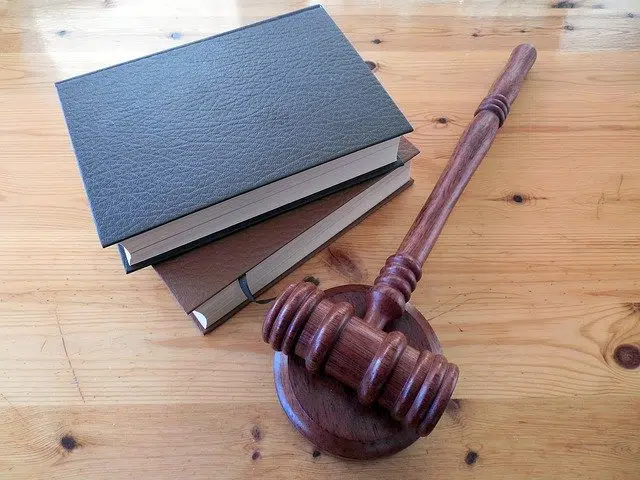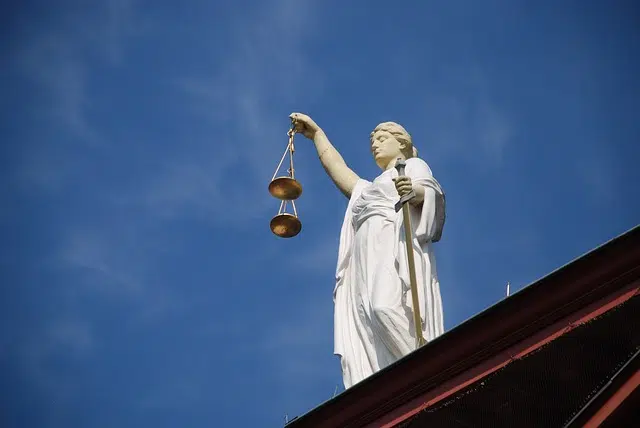
Procedural law regulates jurisdictional facets of the State.
Law can be divided into a large number of branches and specializations, whose object of study focuses on various aspects of reality. In the case of procedural law , it is that which is oriented towards criminal and civil processes and is framed within public law .
Procedural law, therefore, is the division of law that aims to supervise the individuals involved in judicial procedures and organize the courts that are responsible for administering justice. As explained by Dr. Mario Gazaíno Vitero, it is said that procedural law is of public order because it includes those norms that have been established in order to guarantee social convenience.
Procedural law is made up of all those regulations that allow regulating the various jurisdictional facets of the State that establish the processes that positive law must follow in specific situations.
Main concepts
The basic concepts of procedural law are action (a subject asks the jurisdiction to express itself about a certain case), jurisdiction (linked to the obligation of a court to issue a sentence, disseminate it and execute it in accordance with the legislation. in force) and the process (all judicial actions that have the purpose of ensuring that the material right is made effective).
Procedural law is considered to be formal (it regulates jurisdiction), autonomous (it is not subject to the subordination of other areas of law), instrumental (since it is a tool for substantive law to be fulfilled) and public law (it is responsible for the jurisdiction of the court).

Procedural law is instrumental, public, autonomous and formal.
Branches of procedural law
Procedural law can be divided into various branches according to the processes in which it is involved. Thus, it is possible to talk about criminal procedural law, civil procedural law, administrative procedural law, labor procedural law or constitutional procedural law.
Depending on the type of right that is submitted to a court 's judgment, the process will have specific characteristics. The rights to be discussed can be of a private nature (where they are judged through the civil process), of an employment relationship (which will be judged through a labor process), administrative (where the process is called contentious-administrative), and, in case of crime or misdemeanor, will be judged through the criminal process.
Regarding the bodies in charge of ruling in this regard, they have a power that allows them to act by demanding the application of certain specific legal norms . The relationship established between the jurisdictional bodies and who must enforce the ruling they determine is called procedural legal relationship .
Emergence and application
When there is a conflict and self-defense is dispensed with, that is when procedural law arises; Then, the State assumes the role of guardian over the rights of individuals, trying to act with justice and respect to decide how such a conflict should be resolved.
Whatever the right that is being judged, upon ruling the sentence a period of time is established in which the effects of the Procedural Law must be respected; In the event that a new law is passed during the process that may modify the rules of procedure, said process must be considered again by the appropriate Jurisprudence Body to decide the validity or not of the permanence of said sentence.
Historical origin of procedural law
It is interesting to mention that the first town that manifested an organization to judge the behavior of individuals was Greece. Although it is not known with certainty what the characteristics of this administration of justice were, we can assure that the Greeks were pioneers in acting in a pseudo-democracy.
Within what is known about Ancient Greece, it can be indicated that its jurisdictional organization responded to two characteristics: the specialty (dividing conflicts into civil or criminal) and the collegiality of its bodies (each person who collaborated in the resolution of conflicts). had a specialty, and the legal body was made up of a plural group of people).
There was a heliastic court in Greece, which met to debate in broad daylight in the public square about the best way to guide the future of the community . This group was made up of people chosen by the people, with a good reputation and who did not have debts with the treasury. They were in charge of dealing with the crimes that were committed and deciding a sentence for the criminals.
We could say, therefore, that procedural law emerged in that period of history, although it was only many years later that it was understood as such and the term was coined.
